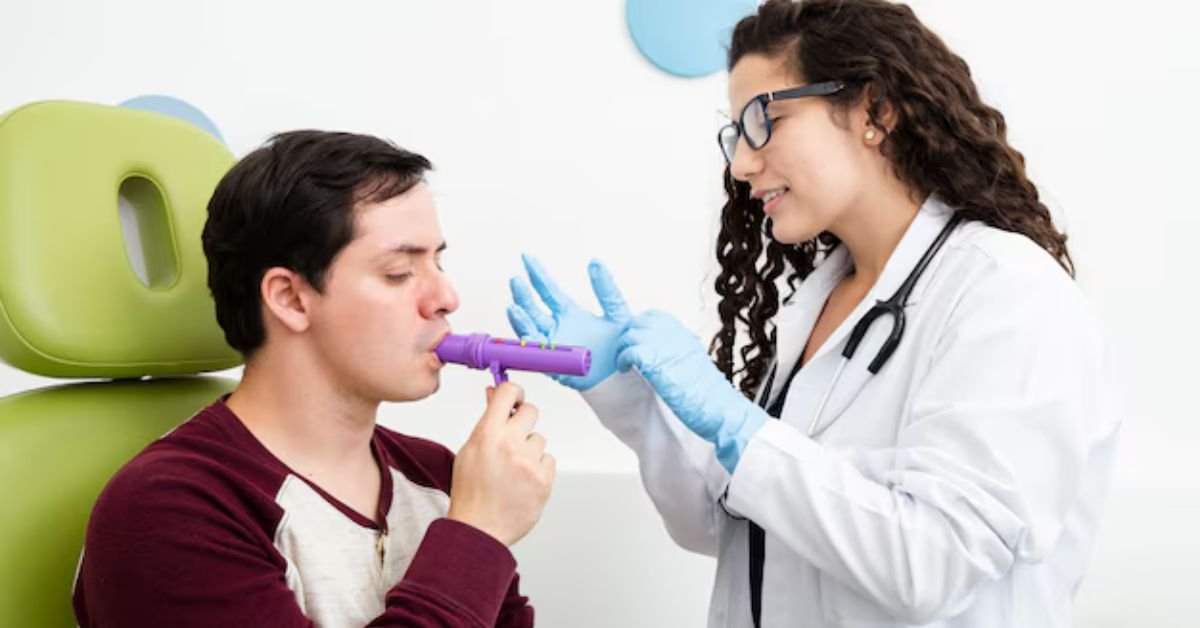Mouth swab drug tests, also known as oral fluid tests, are increasingly used for drug screening due to their convenience and ability to detect recent substance use. Unlike urine or hair tests, mouth swab tests are non-invasive and can detect drugs within a few hours to a few days after use. If you’re facing an upcoming mouth swab drug test and want to ensure a negative result, understanding the test process and employing effective strategies can help you prepare and pass the test successfully.
1. Understanding Mouth Swab Drug Tests
Mouth swab drug tests involve collecting saliva from the inside of the mouth using a swab or collection device. This saliva is then analyzed to detect the presence of drugs or their metabolites. The primary advantage of mouth swab tests is their ability to identify recent drug use, typically within the last 24 to 48 hours. This makes them ideal for situations where recent substance use needs to be monitored.
Drugs commonly tested for in mouth swab tests include marijuana, cocaine, opiates, methamphetamines, and amphetamines. The test can also detect some prescription medications, which can be important for those taking legitimate medications under medical supervision.
2. Avoiding Drug Use
The most straightforward way to ensure a negative result on a mouth swab drug test is to abstain from drug use. Since mouth swab tests are designed to detect recent drug use, refraining from using any substances that might show up on the test is the best strategy for passing. Here are some key points to consider:
- Cease Drug Use: If you know a drug test is imminent, stop using all substances, including marijuana, prescription drugs, and recreational drugs. The longer you abstain, the lower the likelihood that drug residues will be detectable in your saliva.
- Be Aware of Prescription Medications: Some prescription medications can cause false positives on drug tests. If you are prescribed medication that might affect the results, inform the testing administrator beforehand and provide documentation from your healthcare provider.
- Understand Detection Times: Different drugs stay in the system for varying lengths of time. For example, marijuana might be detectable for up to 24 hours, while other substances may have shorter detection windows. Familiarize yourself with the detection times for the substances you might be tested for.
3. Hydrating and Oral Hygiene
Maintaining good oral hygiene and staying hydrated can help minimize the chances of drug residues being detected. Here’s how:
- Stay Hydrated: Drinking plenty of water before the test can help dilute your saliva and potentially reduce the concentration of detectable substances. Aim to drink water consistently over several days rather than attempting to consume large amounts immediately before the test.
- Practice Good Oral Hygiene: Brush and floss your teeth regularly, especially in the days leading up to the test. Use mouthwash to help eliminate any traces of drugs or their metabolites that might be lingering in your mouth.
- Avoid Eating or Drinking Before the Test: On the day of the test, avoid eating or drinking anything for at least 30 minutes prior to the test. This helps ensure that no food particles or drinks interfere with the swab sample or affect the accuracy of the test.
4. Using Detox Products
There are various detox products available on the market that claim to help cleanse your system of drugs. However, the effectiveness of these products can be questionable, and they are not guaranteed to work. If you choose to use detox products, consider the following:
- Choose Reputable Products: If you decide to use a detox product, opt for one from a reputable company with positive reviews. Research the product thoroughly and consider consulting with a healthcare professional before use.
- Follow Instructions Carefully: Detox products often come with specific instructions regarding usage and timing. Follow these instructions precisely to maximize the potential effectiveness of the product.
- Be Skeptical of Guarantees: Many detox products make bold claims about guaranteed results. Be cautious of such claims and understand that no product can ensure a negative result with absolute certainty.
5. Avoiding Common Mistakes
There are several common mistakes individuals make when preparing for a mouth swab drug test. Avoid these pitfalls to improve your chances of passing:
- Don’t Rely Solely on Home Remedies: Some people try using home remedies such as lemon juice, vinegar, or baking soda to cleanse their mouths. While these methods may have some effect on oral hygiene, they are not reliable for passing a drug test.
- Don’t Overuse Mouthwash: While mouthwash can help with oral hygiene, excessive use right before the test can be suspicious and may not effectively remove drug residues. Use mouthwash as part of your regular oral care routine rather than as a last-minute solution.
- Don’t Attempt to Chew Gum or Mints: Chewing gum or mints just before the test is unlikely to significantly impact the results. These products may mask odors but are not effective at eliminating drug traces from saliva.
6. Preparing for the Test
Preparation for the mouth swab drug test involves understanding the procedure and knowing what to expect. Here are some steps to help you prepare:
- Know the Test Procedure: Familiarize yourself with how the mouth swab test will be conducted. Typically, a swab is rubbed along the inside of your mouth to collect saliva. The sample is then analyzed for drug residues.
- Review Testing Policies: If the test is for employment or another official purpose, review the testing policies provided by the organization or institution. This will help you understand what to expect and how the results will be handled.
- Bring Required Documentation: Ensure that you have any required identification or documentation needed for the test. If you are using prescription medications, bring the appropriate documentation to explain their presence in your system.
7. Handling Test Results
If you are concerned about the results of your mouth swab drug test, it’s important to understand how to handle them:
- Request a Re-Test if Necessary: If you believe the test results are inaccurate or if there were extenuating circumstances that could have affected the results, you can request a re-test. Provide any relevant documentation or information that may support your case.
- Know Your Rights: Familiarize yourself with your rights regarding drug testing and result disputes. Different jurisdictions and organizations have varying policies, so understanding these can help you navigate the process effectively.
- Address Positive Results Professionally: If the test results are positive and you have used substances, address the situation honestly and professionally. Be prepared to discuss the context of the results, especially if you have a valid reason for using prescription medication or if there are extenuating circumstances.
8. Legal and Ethical Considerations
When preparing for or undergoing a mouth swab drug test, it’s important to consider the legal and ethical implications:
- Avoid Tampering with Test Results: Do not attempt to tamper with or alter the test results. This includes using substances to mask drug traces or providing a fake sample. Tampering can have serious legal consequences and can damage your credibility.
- Be Honest About Substance Use: If you have used drugs or are currently using prescription medication, be honest about it. Providing accurate information can help address any concerns and ensure that your results are interpreted correctly.
- Understand Legal Protections: In some cases, you may have legal protections related to drug testing, such as medical marijuana use or prescription medications. Consult with legal professionals if you have questions about your rights.
Conclusion
Passing a mouth swab drug test requires careful preparation, understanding of the testing process, and adherence to best practices for maintaining oral hygiene and health. By avoiding drug use, staying hydrated, and employing effective strategies, you can improve your chances of achieving a negative result. Remember, the most reliable way to pass any drug test is to abstain from substance use and prepare responsibly. Understanding the test process and your rights will help you navigate this challenge with confidence and ensure a successful outcome.











